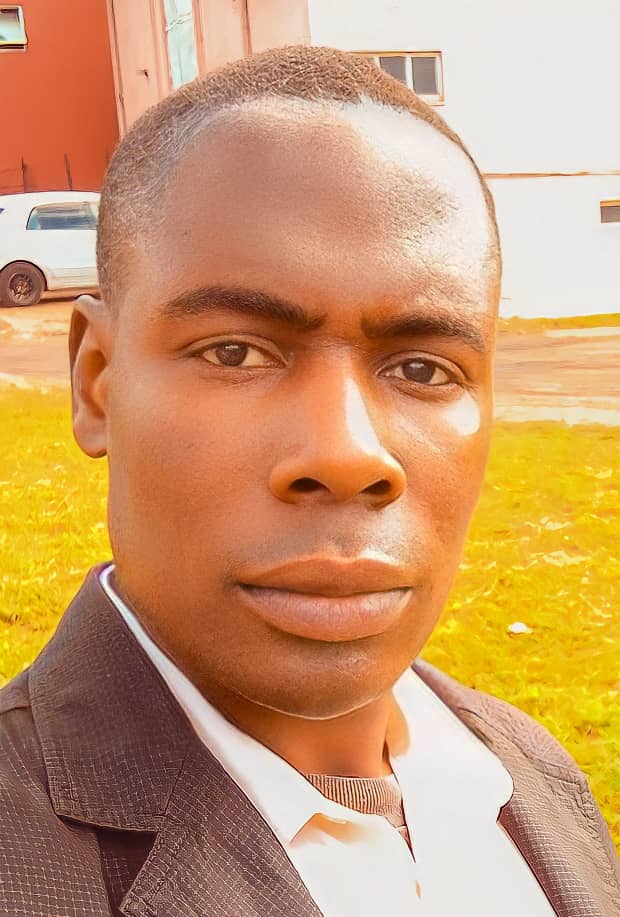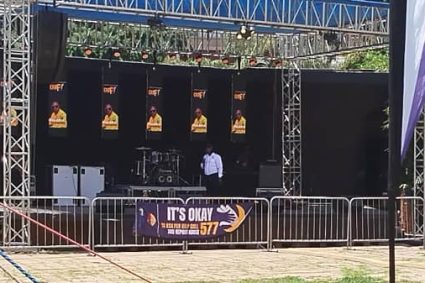
Behind the Scenes: ‘Lights, Camera, Crew’ showcases the talent of film industry professionals
Welcome to “Lights, Camera, Crew” – an initiative dedicated to shining a light on the often-overlooked film crew members who work tirelessly behind the scenes to bring movies to life. Through interviews, profiles, and behind-the-scenes looks at the film-making process, we aim to give these talented professionals the recognition they deserve and inspire aspiring filmmakers to pursue careers in the industry.
In this interview, journalist Shingirai Manyengavana (SM) we’ll be speaking with Joseph Dzatsata (JD) – an accomplished scriptwriter who has worked on a variety of film projects. He’ll be discussing Joseph’s experiences in the film industry, the challenges and rewards of working behind the scenes as a scriptwriter, and the importance of a well-written script in the filmmaking process.
We hope you will enjoy this interview and gain a deeper appreciation for the talented crew members who are an essential part of the film industry.
SM: Hello Joseph. Thank you for joining us today to talk about your experiences as a scriptwriter and the important contributions that crew members like you make to the success of a film. We’re excited to learn more about your work and the role that scriptwriting plays in bringing a film to life.
Can you tell us a bit about your background and how you got into scriptwriting for film?
J.D: Thank you for having me. I grew up in a marginalized village in Bocha and I attended Chirasika Primary School and Hot Springs Secondary school. I’ve loved reading from as early as I can remember and at school I had access to books, magazines and old newspapers. I started writing when I was 14 and in form 1. Back then I hadnt seen a movie or TV series. I read novels and thus I wrote novels. Fast forward to 2018, after I published my spy thriller novel Code of The Eagle, I was approached by a film production company in Australia to turn it into the book into a movie script, and that’s how I got into the film industry.
SM: What inspired you to pursue a career in scriptwriting, and what do you find most rewarding about your work?
J.D: At first it was just a practical decision as storyteller: there are more movie watchers than there are book readers, especially in Zimbabwe. So I wanted my stories to have a bigger audience and scriptwriting is a more practical way to do that. What I find most rewarding is the whole process of building a world, creating characters and seeing the world through their eyes.
SM: As a scriptwriter who works behind the scenes, what are some of the biggest challenges you face in your work?
J.D: When you are always behind the scenes, you don’t always get the credit for the hard work you do. And this affects scriptwriters the most because, most of the time, the script is all they bring to the table and they often get sidelined in decision making on film sets. This is also applies to renumeration, writers are the lowest paid and that is if they get paid at all.
SM: How do you approach the process of writing a screenplay, and what are some of the key elements that you focus on?
J.D: I start from an idea, rather than a character. Before I even write something down, I twist that idea in head over and over until I can distill it into a single sentence. From then I expand on it, building up the characters and their arcs. Every script I touch has elements of action and suspense and that’s my signature.
SM: In your opinion, how important is the role of the scriptwriter in the overall film-making process?
J.D: The importance of the scriptwriter can be equated of a father to the birth of a child. There is no immaculate conception in film-making. It all starts with the script; the rest of the team (cast and crew) is brought in only when the script is ready.
SM: Can you talk about a particularly challenging project that you’ve worked on, and how you overcame any obstacles that arose during the writing process?
J.D: From mid-2021, I created and wrote Smoking Gun, a thirteen-episode TV series, which then aired on ZBC TV in 2022. I first conceived it as a feature film and wrote a 90-page script. The production company then instructed me to convert it to a series. I had to invent other characters and storylines, and to complicate matters, I was given a very short deadline. Usually, I write only when I’m off duty from my day job, but during this period, I had to write even when I was at work. As we got closer the due date, I had to survive on less than three hours of sleep a day.
SM: As someone who often works behind the scenes, how do you feel about the lack of recognition that crew members sometimes receive?
J.D: This is an issue that really touches my heart. This industry doesn’t pay much, the only worthwhile reward that crew members can have is recognition. Most crew members do the work out of passion and some film makers tend to abuse that by not withholding monetary payment and hogging the limelight.
SM: What advice would you give to someone who is interested in pursuing a career in scriptwriting for film?
J.D: My advice would be to diversify. In our country, as of now, scriptwriting does not pay much on its own. It’s more practical to couple it with directing or producing, as that would give you more control over your stories and thus control over your income.
SM: Are there any upcoming projects that you’re particularly excited about, and can you tell us a bit about them?
J.D: I have a couple of projects in the works, but I’ll tell your more about one. At Scribe Visuals Entertainment, we’re currently in the latter stages of post-production for a short film titled Confluence. It’s a story about a desperately poor guy who accidentally intercepts a lot of money from a criminal syndicate after selling his toe to an enigmatic woman. The syndicate then targets him and his family to recover their money, which leads to a brutal confrontation and raises questions about the lengths to which a man will go to escape poverty. Set in Mutare, Confluence is a thriller action film featuring Pretty Mutsago, Tapiwa Rabvu, Edmore Chipere among others. Cleveland Electrical and Hardware Center sponsored the project.
SM: Finally, what do you hope to achieve through your work as a scriptwriter, and how do you see yourself contributing to the film industry in the years to come?
J.D: My goal is to encourage discussion and inspire positive and practical solutions to problems that pervade our society. I’m working to be an example of what every filmmaker should be: fair. With the little that I have, I’m laying the groundwork. Everyone involved in my projects gets a fair treatment and when I get paid, everyone gets their fair share. With this model, I hope to foster a culture of profit sharing in the industry.




